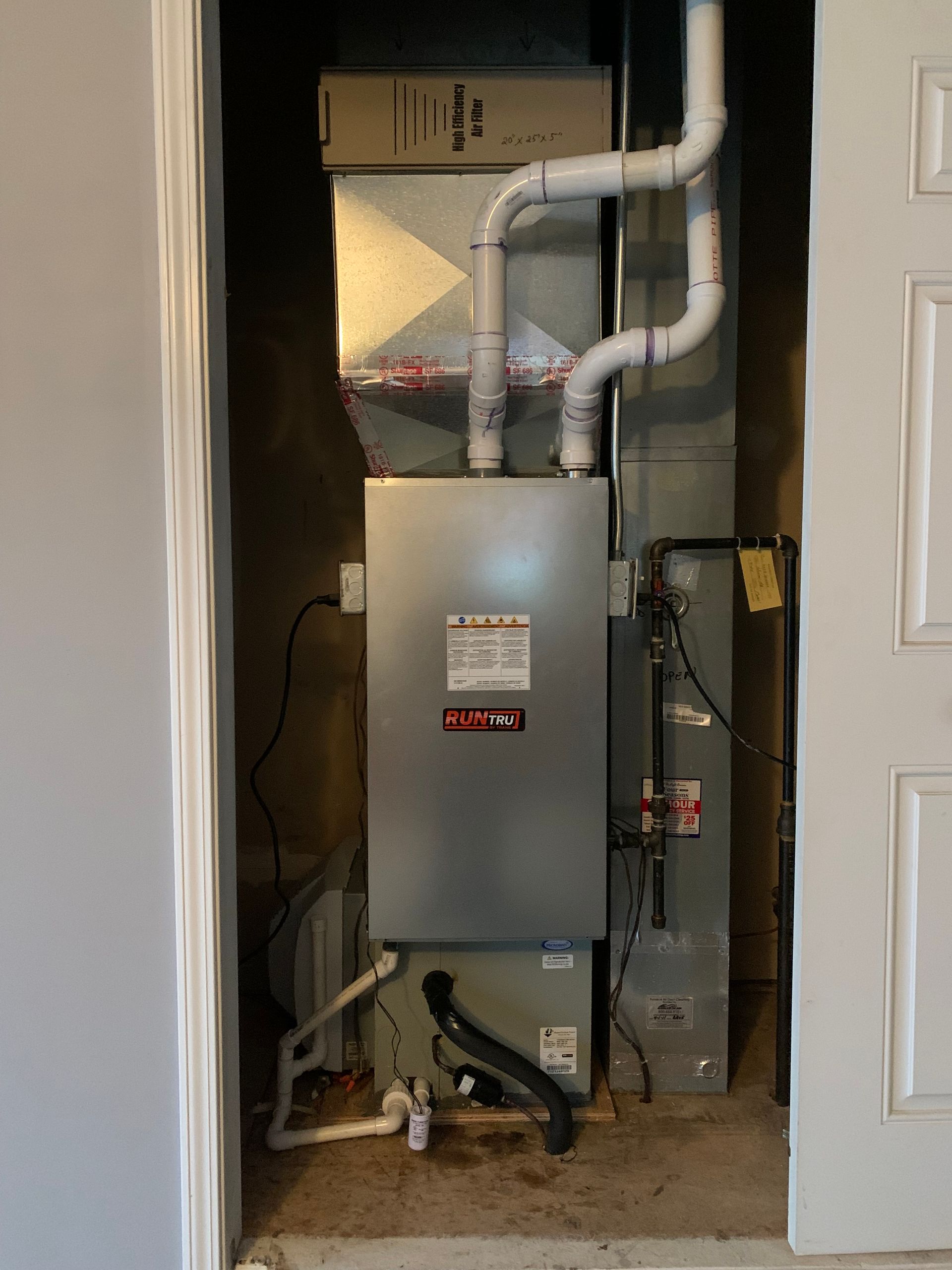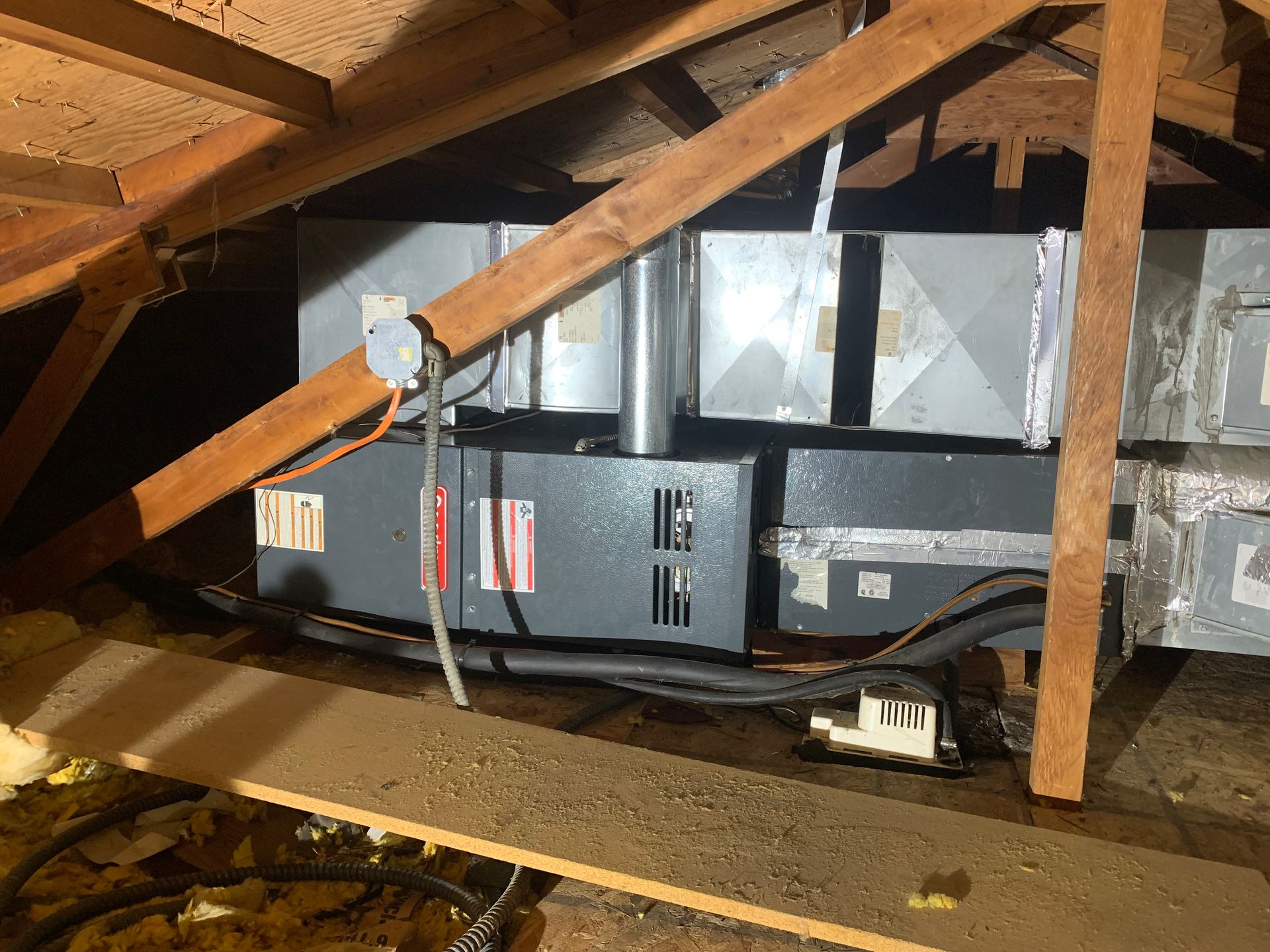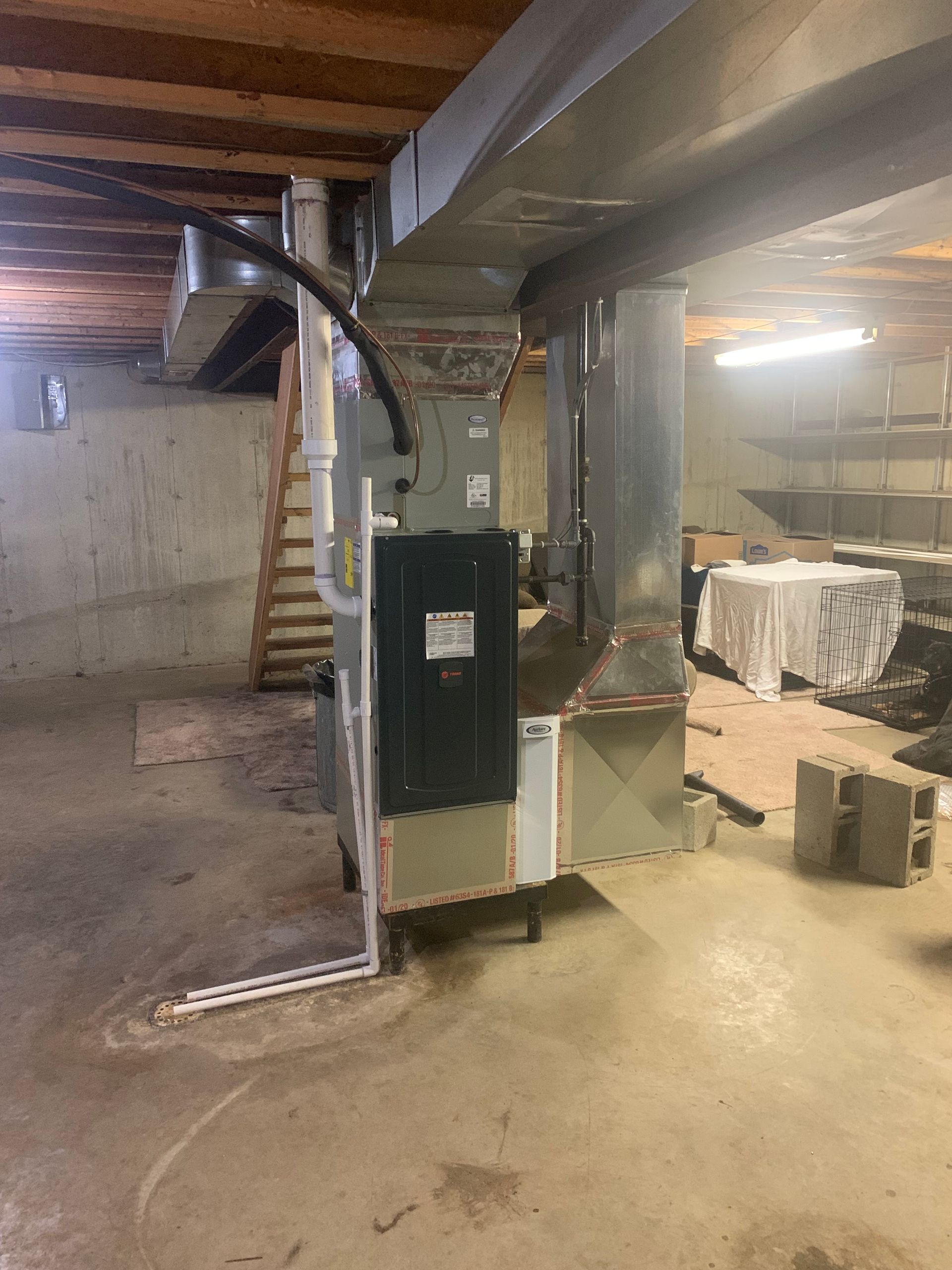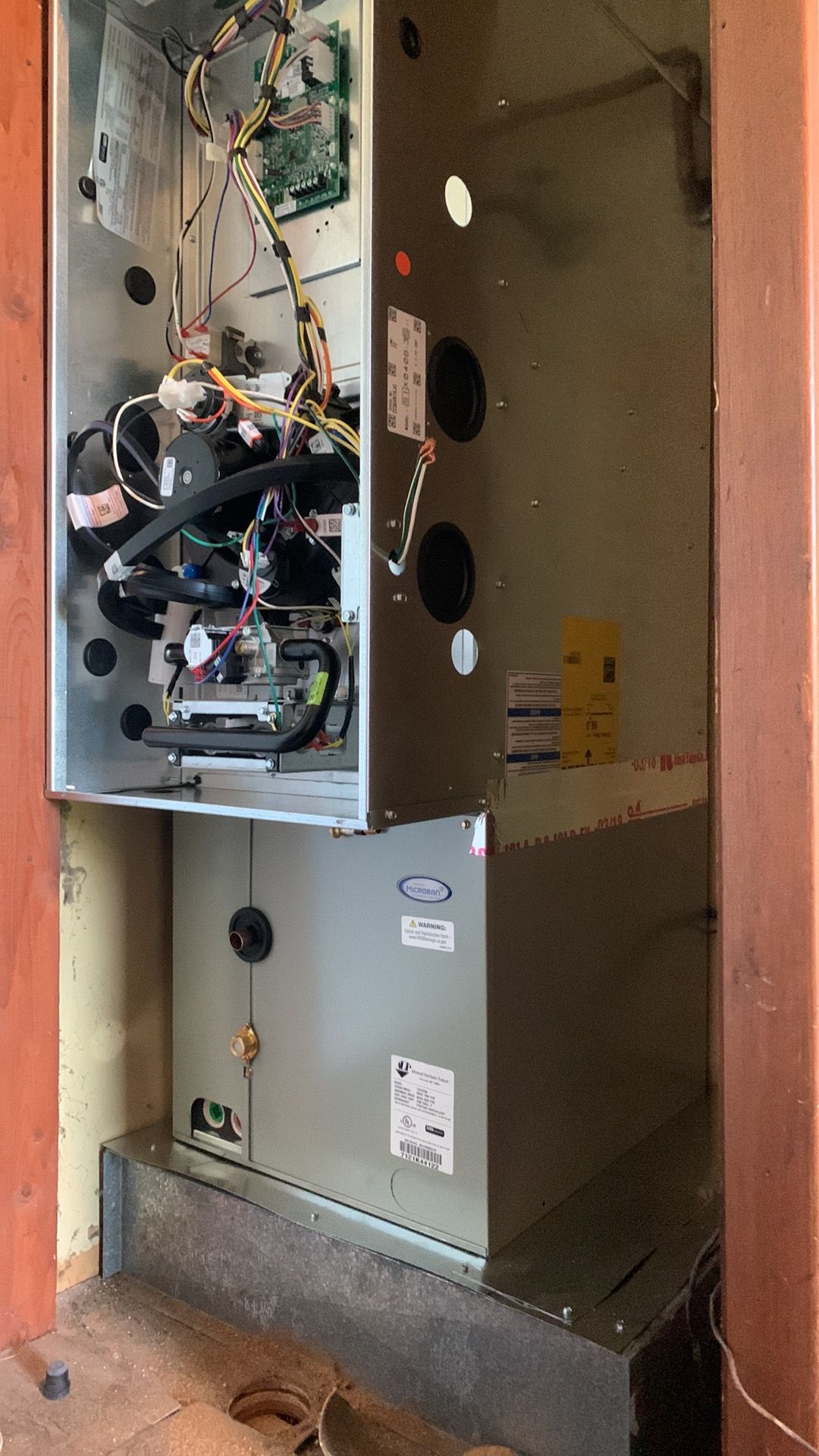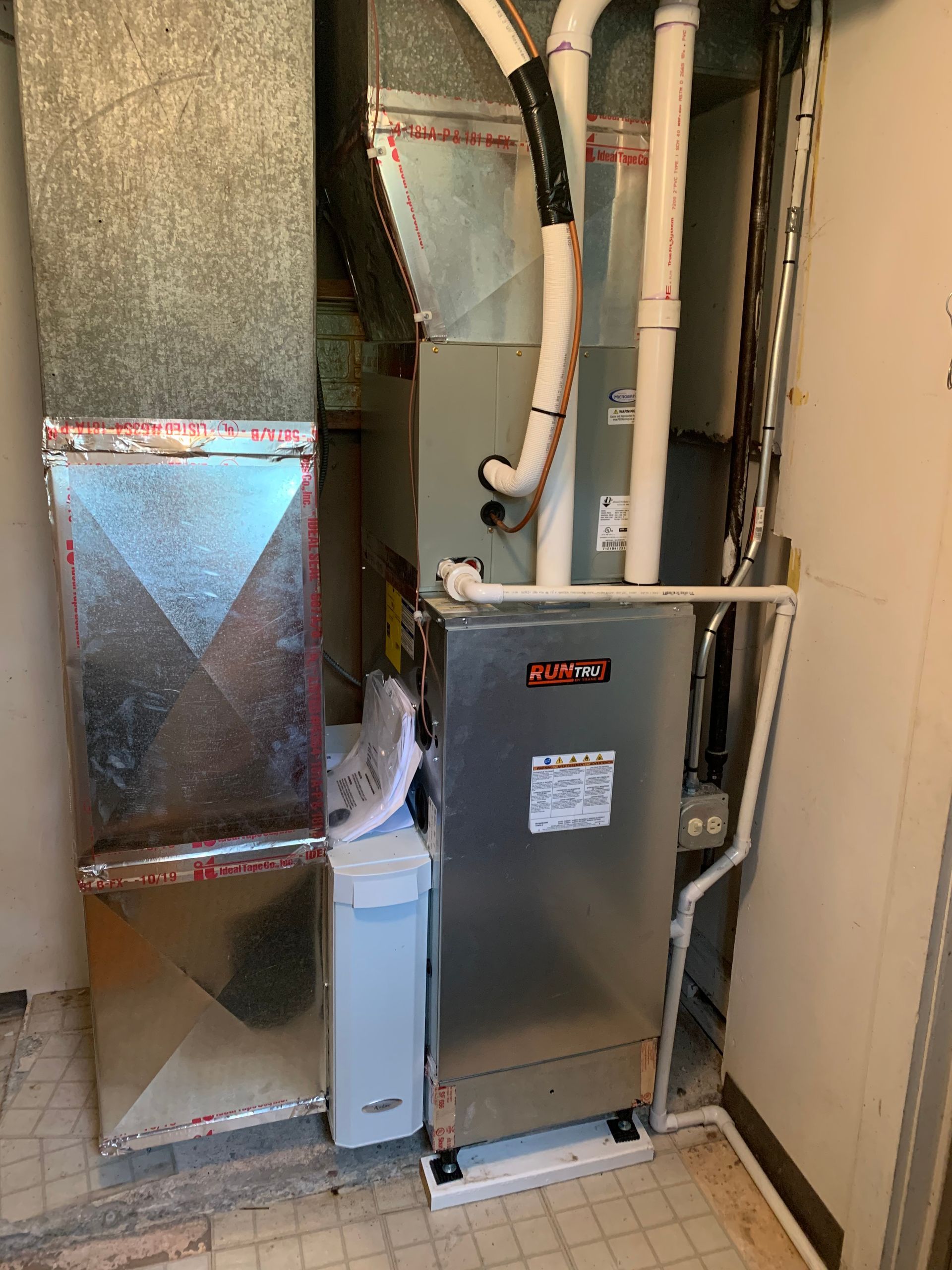Expert Furnace Installation in Wheeler and surrounding areas
We provide great warranties on new furnaces, competitive pricing and have resources for financing options.
Ensure Your Home Stays Warm This Winter with Expert Furnace Installation Services.
For homeowners in Wheeler, IN, finding the perfect furnace is key to keeping your home warm and energy-efficient throughout the winter. At Apex Heating and Cooling, we strive to make the process of selecting and installing your new furnace as straightforward and hassle-free as possible. We understand that choosing the right furnace can be daunting, but our team is here to offer expert guidance from start to finish.
We begin by conducting a thorough assessment of your Wheeler home's heating needs, factoring in the size of your property, your budget, and your energy efficiency goals. This detailed evaluation allows us to recommend the most effective furnace options tailored to your specific requirements.
Once you’ve selected the right furnace, our professional technicians will carry out the installation with precision and care. We focus on ensuring that your new furnace is set up to deliver optimal performance and durability.
At Apex Heating and Cooling, we are committed to providing Wheeler residents with top-notch furnace solutions that keep their homes cozy and efficient all year long.
Give us a call today at:
(219) 299-7134

Licensed, Bonded & Insured
Financing Options Available
Emergency Service
Competitive Pricing
We're here to advise you on the best solution for your furnace replacement
With our replacement furnace installation services, you can rest assured that your new equipment investment is in good hands. Our trained technicians will work hard to make sure your new furnace is working well and providing top-quality service.
Trust Apex Heating and Cooling to provide you with the best furnace installation services in the Porter County area. Contact us to schedule an appointment so you can enjoy the benefits of a better, more reliable and more efficient furnace in your home.
When you work with Apex Heating & Cooling for your new furnace installation, you can expect:
- Free in-home consultations with one of our HVAC professionals
- Assistance with deciding the energy efficient heating system that will meet your unique needs
- Honest evaluation and recommendations for the proper size unit for your living space
- Convenient financing options for you with approved credit
- Full factory warranties on equipment and labor
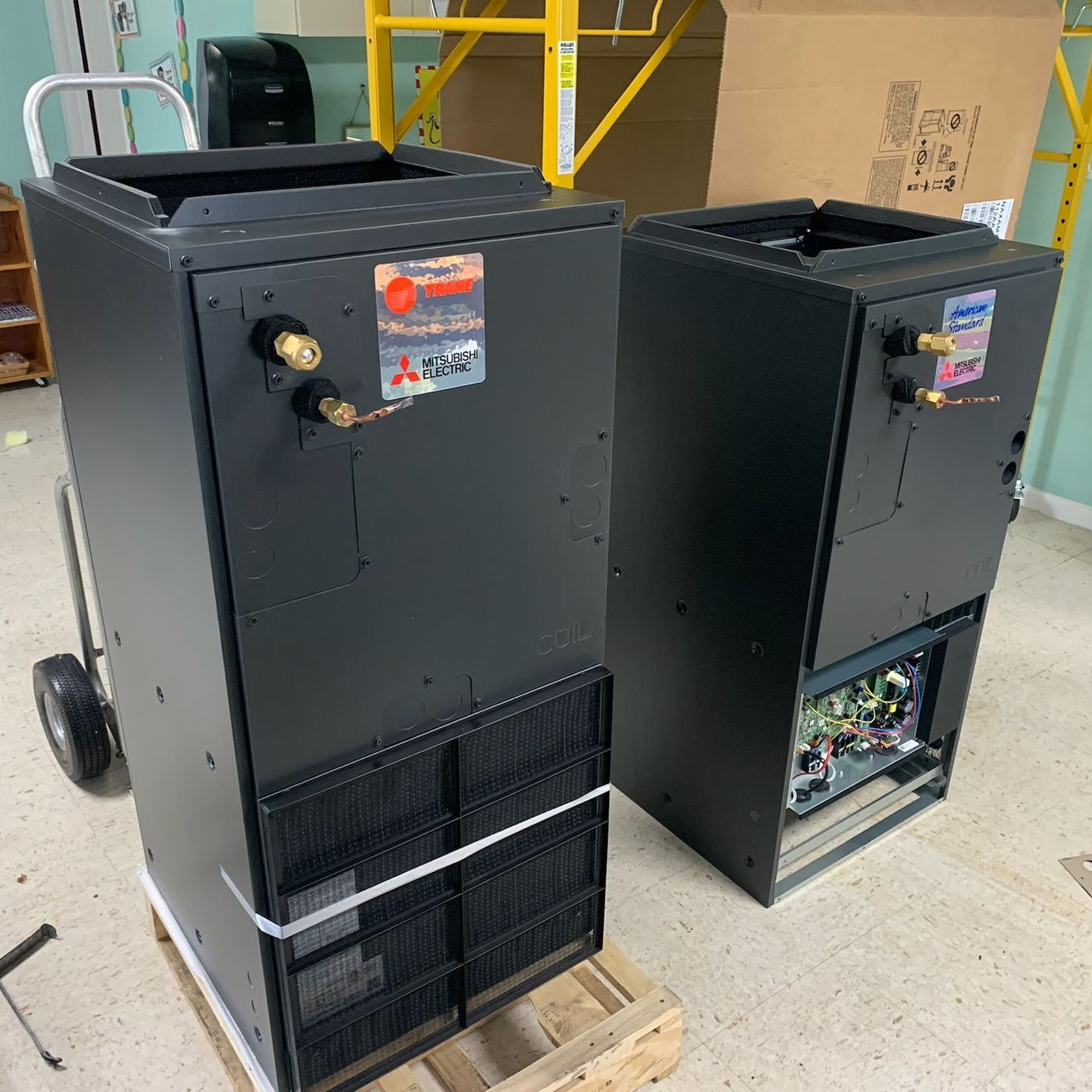
-
How do I know it's time to consider replacing my furnace?
Deciding when to replace your furnace involves considering several factors. Here are some key indicators that it might be time to replace your furnace:
Age of the Furnace: The average lifespan of a furnace is typically around 15-20 years. If your furnace is reaching or surpassing this age, and you are experiencing frequent breakdowns or reduced efficiency, it may be more cost-effective to invest in a new, energy-efficient model.
Frequent Repairs: If you find yourself repeatedly calling for furnace repairs and the costs are adding up, it may be a signal that your furnace is becoming less reliable and more prone to issues. Investing in a new system could save you money in the long run.
Increased Energy Bills: As furnaces age, they often become less efficient, leading to higher energy bills. If you notice a significant and unexplained increase in your heating costs, it could be a sign that your furnace is no longer operating at peak efficiency.
Inconsistent Heating: If some rooms in your home are consistently too hot or too cold, or if your furnace struggles to maintain a consistent temperature, it may indicate that your system is no longer capable of distributing heat evenly.
Strange Noises: Unusual noises, such as banging, rattling, or popping sounds, may indicate mechanical problems within the furnace. If these issues persist despite repairs, it might be time for a replacement.
Yellow Pilot Light: A pilot light that is consistently yellow instead of blue can be a sign of incomplete combustion, potentially producing carbon monoxide. This is a serious safety concern, and if you observe a yellow pilot light, you should turn off the furnace immediately and seek professional assistance.
Visible Signs of Rust or Cracks: If you notice visible signs of corrosion, rust, or cracks in your furnace, it could indicate structural issues. A compromised furnace can pose safety risks, and replacement may be necessary.
Changes in Home Comfort Needs: If you've made significant changes to your home, such as additions or renovations, and your current furnace is no longer able to meet the heating demands, it may be time to upgrade to a more powerful or efficient system.
Safety Concerns: If your furnace poses a safety risk due to issues such as gas leaks, carbon monoxide leaks, or repeated malfunctions, it's crucial to prioritize the safety of your household and consider replacing the unit.
When contemplating furnace replacement, it's advisable to consult with a licensed HVAC professional. They can assess the condition of your current system, discuss your heating needs, and provide recommendations for the most suitable replacement options. Investing in a new, energy-efficient furnace not only improves comfort but can also result in long-term energy savings.
-
What is the average life expectancy of HVAC equipment?
Most systems have a lifetime of 10 to 20 years. As your equipment gets older, its efficiency can decrease dramatically. You may notice that it gets noisier and needs repairs more often. When a unit begins to show its age, you have two choices. You can overhaul the system or replace it. Because heating and cooling technologies improve over time, a new system designed with newer, more energy-efficient equipment makes sense, especially if your system is 10 or more years old. We can estimate the cost of a new system as well as a payback schedule that will show you how newer technology will pay you back in lower energy usage.
-
How can I reduce my heating costs?
Upgrade to a high-efficiency furnace — New high-efficiency furnaces use up to 50% less fuel than an older system. It can save you up to 25 percent of your home-heating costs in one year, and within a few years, you'll have recovered the initial cost of replacing/upgrading your furnace. Choosing a model with an energy-efficient motor can save 20 to 50 percent of the energy needed to continuously operate a fan motor. Let us show you the advantages of replacing your old furnace today.
Have an annual maintenance performed — Having annual maintenance performed on your furnace by a licensed technician will help ensure it operates at its peak efficiency and catches any potential breakdowns before they occur.
Install a programmable thermostat — A programmable thermostat enables you to control your home's temperature when you're away or asleep. For every 1° you lower your thermostat for seven hours per day, you save one percent on your heating bill.
Don't block vents in well-used rooms — Keep your supply and return air vents free of objects like blinds, carpets, or furniture so your furnace can operate efficiently and there is even heat distribution.
Install ceiling fans — Change the direction of airflow on your ceiling fans. In the winter, the blades should operate in a clockwise direction helping to push the warm air from the ceiling down into the room.
-
Why should I buy Energy Star labeled equipment?
The average home spends about $1,900 annually on energy bills. Heating and cooling account for as much as half of a home's energy use. The EPA provides important recommendations for energy-efficient equipment, including proper sizing, quality installation and maintenance, and other home improvement considerations to help you get the most out of the heating and cooling products you purchase, save energy, and save as much as 20% annually on your total energy costs.
ENERGY STAR-qualified products prevent greenhouse gas emissions by meeting strict energy efficiency guidelines set by the U.S. Environmental Protection Agency (EPA) and the U.S. Department of Energy (DOE).
-
How often should I change my furnace filter?
You should replace the air filter in your furnace on a regular basis. Dirty air filters reduce the amount of air flowing through a system and make the furnace work harder to maintain the temperature. How often you change the filter depends on the type of filter you use, if you have pets and the size of your equipment. Please give us a call and we can give you proper guidance.
-
What does SEER, AFUE, and HSPF ratings mean to me?
SEER, AFUE, and HSPF are all measures of energy efficiency. Air conditioners may look similar, but their Seasonal Energy Efficiency Rating (SEER) can vary widely. Higher SEER numbers save more money spent on electricity. A 13 SEER air conditioner, the EPA "current minimum standard", uses 23% less energy than a 10 SEER unit (EPA standard up until Jan. 2006). Even though 13 SEER is the minimum efficiency available, we currently offer a line of air conditioners that start at 13 SEER and go all the way up to 21 SEER. Depending on your average usage, higher SEER air conditioners can significantly reduce your electric bill.
Heat pumps have SEER ratings like air conditioners and Heating Seasonal Performance Factor (HSPF) ratings for measuring heating efficiency. Higher HSPF ratings mean greater energy savings. The HSPF scale range is 7.5 to 13.0.
Today's new high-efficiency furnaces can save up to 50% in operating costs over a ten-year-old furnace. Many 1990 and earlier model furnaces have Annual Fuel Utilization Efficiency (AFUE) ratings of 65% or less. The minimum AFUE-rated furnace that can be sold in the United States as of May 1, 2013, is 80% in southern states and 90% in northern states.
Our current product offering starts at this minimum AFUE rating and goes all the way to a very efficient 98.3% AFUE rating. Depending on your average usage, higher AFUE-rated furnaces can significantly reduce your gas bill.
What People Say About Us
"Apex was very efficient and a great value. When our furnace stopped working, Ed was able to come out that day (a weekend) to assess and give an estimate. He was back within a few short days to install our new furnace! He is professional, flexible, and trustworthy. Would recommend/use again!"
Contact us any time
Contact us any time
We will get back to you as soon as possible.
Please try again later.
